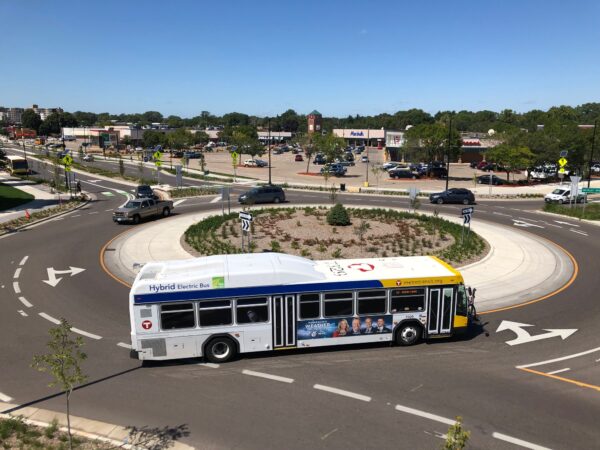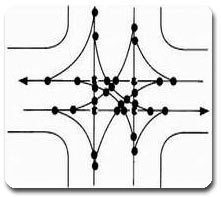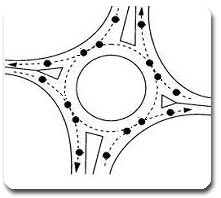Roundabouts
More roundabouts—one-way circular intersections where traffic flows around a center island—are coming to Richfield.
Roundabouts keep traffic flowing and offer safety benefits for drivers, bicyclists, and pedestrians. Vehicles entering a roundabout yield to those already in it, providing safe and efficient traffic flow. No more red lights!

Pictured above: 66th and Nicollet
Why Roundabouts?
Slower speeds are generally safer for pedestrians, and studies show that roundabouts at busy intersections are dramatically safer than stop lights, offering:
- a more than 90% reduction in fatalities*
- a 76% reduction in injuries**
- a 35% reduction in all crashes**
* “Safety Effect of Roundabout Conversions in the United States: Empirical Bayes Observational Before-After Study.” Transportation Research Record 1751, Transportation Research Board (TRB), National Academy of Sciences (NAS), Washington, D.C., 2001.
** NCHRP Report 572: Roundabouts in the United States. National Cooperative Highway Research Program, TRB, NAS, Washington, D.C., 2007.
Roundabouts move traffic safely and efficiently by:
- slowing driver speeds
- reducing conflict points
- allowing easy decision-making
Slower vehicle speeds mean:
- Drivers have more time to judge and react
- Older and beginner drivers find intersections safer to navigate
- The severity of accidents is reduced
- Pedestrians are safer
Other benefits:
- Traffic is always on the move so there is less delay
- Traffic capacity in the intersection is increased 30 to 50%
- Pollution and fuel use are reduced
- Fewer stops and starts means less noise
- There is no signal equipment to install and repair
Compared to standard instersections, there are fewer conflict points in a roundabout:


(Left) A traditional intersection has 32 conflict points. (Right) A modern roundabout has 16 conflict points. Accidents in roundabouts are typically minor due to slower speeds and indirect contact points.
WANT TO LEARN MORE ABOUT ROUNDABOUTS?
Check out these links: